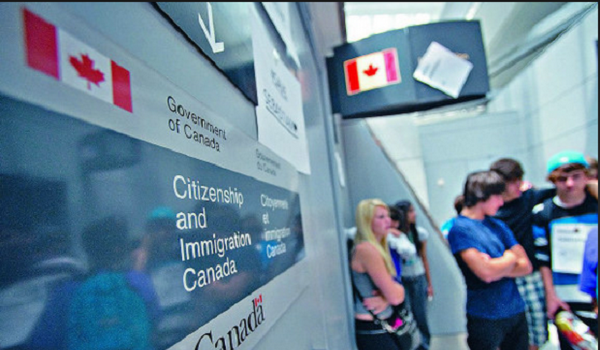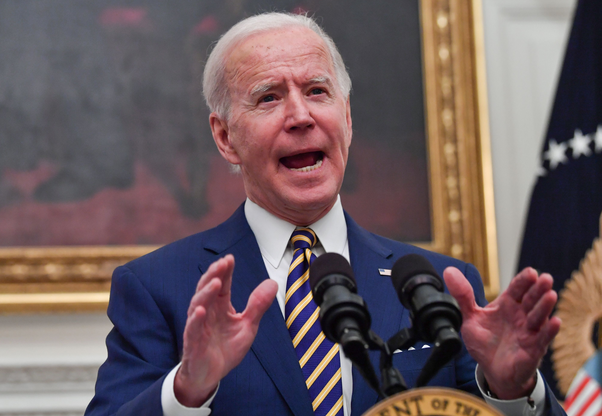Canada must take a bold step to protect immigrants from foreign intimidation, report says
A new report by human-rights lawyers, released ahead of the public inquiry on foreign interference, says Canada must be prepared to take forceful action to protect those who are often the targets of these attacks: immigrants and refugees.
It says Canada is breaking its obligations under international law to protect those who start a new life in this country but often face intimidation and pressure from authoritarian governments they left behind in their homeland.
“Canada is legally obligated to protect people within its borders against certain human-rights violations arising from incidents of transnational repression, and there are legal frameworks and mechanisms available to Canada at the international and domestic levels to combat such incidents,” the report said.
“Despite this, the Canadian government has yet to sufficiently respond,” it added.
In order to combat this repression, the report urges Ottawa to cancel a long-standing treaty with China that obliges it to co-operate with Beijing on police and criminal investigations.
As Western intelligence agencies, including the Canadian Security Intelligence Service, have warned, Beijing has a history of using what are ostensibly anti-corruption campaigns, such as Operation Fox Hunt, to instead find and punish dissidents who have fled to other countries. Last fall, it was reported that China ran a network of illegal police stations in Canada and around the world.
Canada should end its 1994 treaty with China on Mutual Legal Assistance in Criminal Matters, the authors say, referring to an agreement that allows Chinese or Canadian prosecutors to call upon investigators in each other’s country to help obtain evidence.
On Monday, Quebec Court of Appeal Justice Marie-Josée Hogue begins her term as commissioner of a public inquiry into foreign interference by China and other hostile states.
The inquiry follows months of reporting on Chinese foreign interference including revelations in The Globe and Mail on May 1 that Beijing targeted Conservative foreign affairs critic Michael Chong and his relatives in Hong Kong in the lead-up to the 2021 election. The disclosure of this meddling prompted Ottawa to expel Chinese diplomat Zhao Wei later that month.
The new report, Combatting Transnational Repression and Foreign Interference in Canada, was authored by international human-rights lawyers Sarah Teich, David Matas and Hannah Taylor.
It’s published by Human Rights Action Group as well as the Council for a Secure Canada. The report is endorsed by nine groups representing diaspora communities that fight transnational repression from countries including China, Russia, Iran, Turkey, Ethiopia, Eritrea and others.
The report says that the various agencies and departments of the federal government need to work together to effectively combat transnational repression.
Canada needs not only a registry of foreign agents to track efforts to influence this country, it says, but also a commissioner of foreign influence to receive and investigate complaints: including alleged violations by foreign embassies and consulates.
The authors say Canada needs a dedicated hotline where targets of intimidation can call for help in order to co-ordinate a response and keep track of these repressions.
Canada should criminalize the offence of “refugee espionage” where foreign governments spy on those who have fled their homeland to settle in this country, they say. And, it should create a civil cause of action – a basis to seek judicial relief – specific to transnational repression so that diaspora groups have easier standing to sue foreign governments or agents in Canada working for them.
Ottawa should also train law-enforcement officers and campus security at universities to recognize and address cases of transnational repression, the report said.
In addition, it should commit to slapping targeted sanctions on foreign officials or entities found to be engaging in transnational repression, the report said.
Canada has a poor global reputation right now for tackling this form of foreign interference, the authors say. They noted that a report from Freedom House, a Washington-based advocacy group for civil liberties, concluded that mechanisms available to report incidents of transnational repression in Canada are inadequate, and that victims are often “disappointed by the lack of response from law enforcement.”
The authors of the new report say Canada is failing its obligations to protect people in this country from foreign-based repression, including under the 1954 International Covenant on Civil and Political Rights and the 1951 Refugee Convention.
Most of the rights it’s obliged to protect are also listed in the Canadian Charter of Rights and Freedoms. These rights include the right to life; the right to be free from torture and cruel, inhuman or degrading treatment or punishment; the right to liberty and security.
The report calls on Ottawa to create a specialized fund to provide physical, psychological and financial support for victims of transnational repression that can be used for needs such as emergency housing, physical and mental health treatment and new phones or laptops for those whose devices are hacked.
This article was reported by The Globe and Mail
















